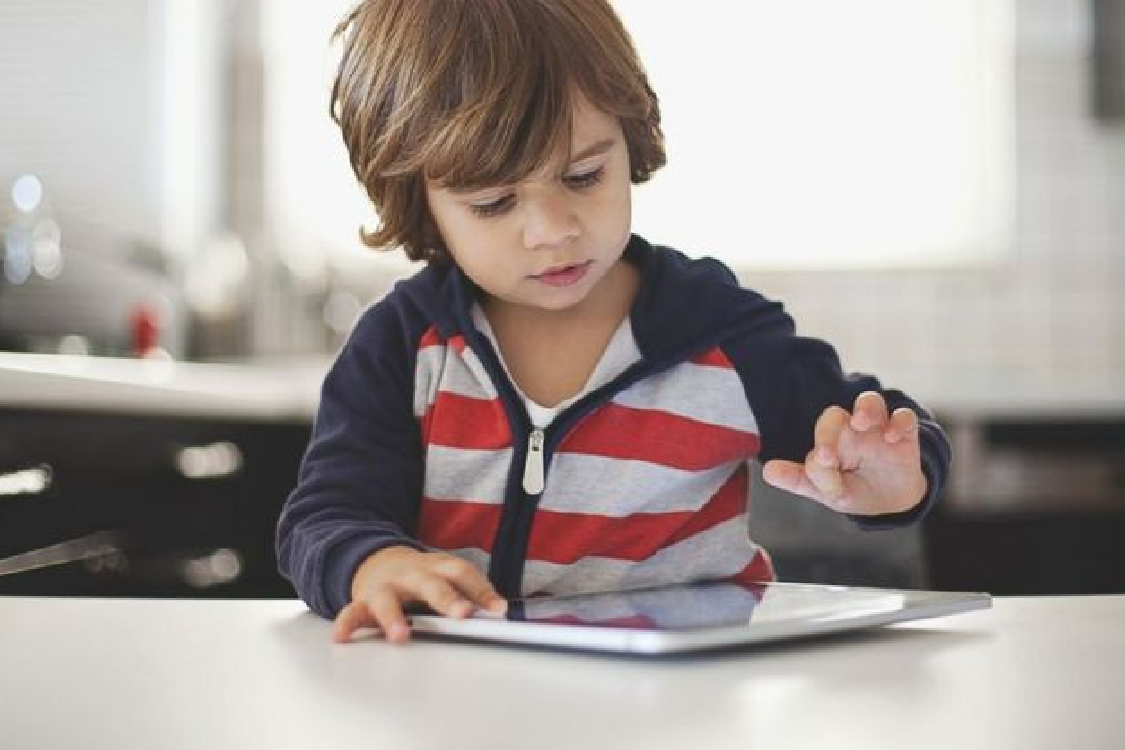How Much is too Much?
Should I allow my toddler to use an iPad? Are apps okay to use for teaching? Is it okay to give my child my phone or tablet when we are a restaurant? How much screen time is okay for my kiddo? How much screen time is too much?
I get asked these questions daily! The truth is, we are living in a world that is moving more and more towards all things technology. As adults, most of us always have our phones within arm’s reach and in fact, we often feel like we have lost something if we don’t have our phone right next to us. The number of hours spent on devices has especially increased during the past year with the rise in distance learning. So, this poses the questions: how much screen time is too much?
To start, the behavior we model matters! Your child is watching and observing you from infancy, as they grow, they want to imitate their number one companions so they begin to imitate the actions they observe. Limiting your own technology use and spending more time interacting and connecting with family and friends will spark the desire in your little one to do the same. Simple things like turning off the TV and instead creating a fun play routine are ways to inspire your little one to seek out more connection and communication with others.
The American Academy of Pediatrics (AAP) recommends the following:
- For children under 18 months of age, avoid the use of screen time all together. Video chatting, through platforms such Facetime, Whatsapp or Skype, can be used in moderation, for example: if a parent is out of town or a long distance grandparent. Pediatricians report that video chatting with family members can help build relationships, however, the AAP reports that more studies are needed to determine the cognitive and behavioral impacts of too much screen time, particularly with babies and toddlers.
- If choosing to introduce media to little ones 18 to 24 months of age, parents should choose high-quality programming, always be present, and more importantly be interacting and playing with their children. Devices should not be a replacement for interactions, but rather a shared activity and experience.
- For ages 2 to 5 years old, doctors recommended 1 hour or less per day of screen time, and urge parents to continue choosing high-quality programming and to continue parent involvement: watch the program with your little one to help them understand what they are seeing.
According to Pediatric Opthalmologist Dr. Charlotte Gore at the Gavin Herbert Eye Institute, when using screens-including televisions, computers, phones, tablets, and game consoles-you are engaging in what is referred to as near work. “Studies suggest that the more time you spend on near work the higher change you have of getting myopia, or near-sightedness.” Increased screen time can also lead to eye strain and fatigue, as well as dryness, irritation and often headaches.
According to the American Academy of Child & Adolescent Psychiatry (AACAP), in the United States, children between the ages of 8 to 12 years old, spend on average, 4-6 hours per day watching/using a screen, and teens spend up to 9 hours.
In addition to eye fatigue, prolonged screen time may also lead to:
- Not enough physical activity
- Weight changes
- Sleep changes
- Mood changes
- Reading fewer books
- Changes in social skills
- Lower grades in school
- Less time interacting with others
As with developmental milestones, the above are recommendations based on research, but ultimately the decision is yours to make. I have had so many parents tell me that they strictly followed guidelines with their first child, but with their second they just handed over the iPad without thinking twice. We all have do what we have to do in order to get through the day or a tough moment, so don’t be too hard on yourself if one day, you slip up and your little one has had over an hour of screen time. You are human, you are perfectly imperfect, and you are learning, so please gentle with yourself. Below are some additional tips to keep in mind when it comes to screen time:
- Spend more time engaging in book reading and play based activities with your children
- Always supervise and familiarize yourself with the program to make sure the content is appropriate for your child’s age
- If/When using screen time for learning, make sure you are interacting with your child. Talk to them about what you see, make comments, ask questions and make connections to real life events/situations.
- Turn off all screens during family meals
- Turn of all screens during family outings
- Avoid using screens as a means to reduce/avoid tantrums
- Turn off and remove screens 30-60 minutes before bedtime
Ultimately, this is a personal choice, but always having the research to help support and guide our decisions is essential. Personally, if you ask me, I am not a huge fan of using iPads in my sessions, nor does any of my team. However, we do know that for some kiddos, it is a huge reinforcer and motivator so we may play one song on our phone or computer when we are transitioning between activities, as a quick break, or a way to create more opportunities for language and learning.
So really, the important question isn’t “how much screen time is too much”, but rather “how is my child being as part of this world?” According to a study by Microsoft, the average human being now has an attention span of eight seconds, which is a big decrease from the year 2000 when the average attention span was 12 seconds. So, if you want your little one to grow up being curious about others, exploring nature and the world around them, and discovering more about themselves and their role in this world, then definitely limit the hours of screen time, get outside, read books, play with toys, and constantly interact with your little one. Although there are great apps and programs out there to help support your little one, in my opinion, the best person to teach your kiddo is YOU mom and dad and the best tool for teaching is imitation and experience!

Sholeh Shahinfar, MA, CCC-SLP, RYT
Sholeh Shahinfar is the Founder of Valued Voices, a licensed Speech Language Pathologist, Child Communication Specialist and Certified Oral Motor Therapist. She is passionate about uplifting children’s voices in the world and inspiring self-expression. In her free time, Sholeh embraces a vegan lifestyle, loves going to the ocean, exploring nature with her pup Kobe, practicing yoga, traveling, and spending time with her loved ones.

